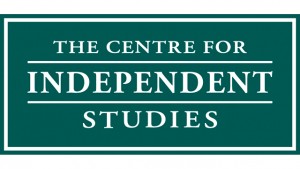Home » Commentary » Media Release » New CIS research: Rich and poor Australians united on pausing immigration
· MEDIA RELEASE

 The majority of both rich and poor Australians support cutting the immigration intake to relieve population pressures on infrastructure, requiring migrants to learn English and Australian values to promote integration, and maintaining strong border protection policies, according to new research from The Centre for Independent Studies (CIS).
The majority of both rich and poor Australians support cutting the immigration intake to relieve population pressures on infrastructure, requiring migrants to learn English and Australian values to promote integration, and maintaining strong border protection policies, according to new research from The Centre for Independent Studies (CIS).
The research, Australian Attitudes to Immigration: Coming Apart or Common Ground? is based on polling by YouGov Galaxy that surveyed the opinions on immigration-related topics of 500 Australians who live in the top 10% of metropolitan postcodes by income and education, and 500 who live in the bottom 10%.
Research authors Dr Jeremy Sammut and Monica Wilkie say the polling shows that attitudes to key immigration questions in both the most affluent and least affluent suburbs are not starkly polarised and are far more similar than they are different.
“In both rich and poor postcodes, strong majorities — 65% of residents in the top postcodes and the 77% in the bottom postcodes — support cutting or pausing immigration until struggling transport, schools, and housing infrastructure catches up with demand,” Dr Sammut says.
“The consensus is even stronger regarding integration, with 75% in the top postcodes and 82% in the bottom postcodes believing the government should require migrants to attend a course about Australian values before granting them permanent residence.
“And 80% in the top suburbs and 86% in the bottom ones also agreed that migrants should have to learn English.”
The researchers said that majorities across the polling (67% in the least affluent suburbs and 58% in the most affluent ones) also agreed ‘regardless of whether the Coalition or Labor wins the next federal election, the border protection policies introduced by the federal government in 2014 should remain in place.’
“Conflict between elites and ordinary voters over immigration — combined with loss of control of borders — has led to populist insurgencies against the political establishment in many European countries, and to the ‘Leave’ Brexit victory in the UK and Trump’s election victory in the US,” Ms Wilkie says.
“What our polling indicates is that Australia faces an old-fashioned political problem over immigration: politicians being ‘out of touch’ on the intake and integration issues that are of common concern to the majority of metropolitan voters.
“Infrastructure-linked intake cuts, actively promoting integration, and strong border protection measures are not ‘fringe’ (or worse) views — they are mainstream public opinion.
“To ensure our immigration program retains public support, governments must respond to public concerns about urban congestion and social cohesion.”
Jeremy Sammut is the Director of the Culture, Prosperity and Civil Society Program, and Monica Wilkie is a Policy Analyst, at The Centre for Independent Studies. Their report, ‘Australian Attitudes to Immigration: Coming Apart or Common Ground?’ will be released for Monday November 19.
New CIS research: Rich and poor Australians united on pausing immigration